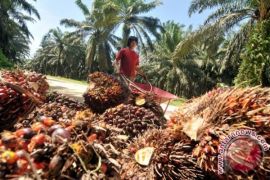U.N. peacekeeping chief Alain Le Roy told reporters Gbagbo`s forces had used a lull in fighting on Tuesday for peace talks as a ruse to reinforce their positions.
"We understand that since that time, the forces of Mr. Gbagbo ... have regained terrain and they have full control of the Plateau and Cocody area," Le Roy said, referring to districts where his residence and diplomats` homes are located.
France, the former colonial power in Ivory Coast, said Gbagbo`s forces had fired at the residence of the French ambassador, prompting counter-strikes by French helicopters.
Gbagbo, who has refused to cede power to Ouattara despite U.N. certified results showing he lost a November election, remains isolated in the bunker under his residence where he has sought refuge from a concerted assault by Ouattara`s troops.
Only three days ago, his defeat had appeared imminent and talks took place between the two sides. Le Roy said on Friday fighting was still going on but there was a stalemate.
"We have seen heavy weapons to be transferred to the Cocody area, including this morning," he said.
Gbagbo adviser Toussaint Alain disputed the statement, saying French strikes, which were mandated by the U.N., had destroyed all Gbagbo`s heavy weapons earlier in the week and also denied the French ambassador`s residence had been attacked.
"France is just looking for a pretext to get rid of President Laurent Gbagbo," Alain told Reuters in Paris.
Mobilisation call
In another sign of Gbagbo regaining influence, his RTI television, silent since fierce fighting broke out in Abidjan this week, came back on air broadcasting an appeal for support.
"The regime of Gbagbo is still in place, a strong mobilisation is required by the population," it said.
Gbagbo, who has ruled Ivory Coast since 2000, is defended by around 1,000 men -- his presidential guard and youth militiamen, but Ouattara allies say he has also armed civilians.
Ouattara has based himself in the Golf Hotel since the Nov. 28, 2010 election, which was meant to draw a line under a 2002-3 civil war which split the world`s top cocoa producer in two.
Le Roy said Gbagbo`s forces were edging towards the building, which has been under U.N. guard. "While we speak they may be very close to the Golf Hotel," he said.
French helicopters struck Gbagbo`s compound in the early evening, hours after an attack by Gbagbo`s forces on the nearby residence of the French envoy, witnesses said.
Frederick Daguillon, spokesman for the French force in Ivory Coast said mortars fired by Gbagbo`s fighters had landed within the boundaries of the residence but had done no damage.
Residents in Cocody said later the situation was now quiet.
Ouattara`s ability to unify the West African state may undermined by reports of atrocities since his forces -- a collection of former rebels from the north -- swept south into Abidjan more than a week ago.
The United Nations human rights office said on Friday it had found 115 corpses in the west in the past 24 hours, adding to the 800 dead reported by aid groups last week.
Some of the victims were burnt alive and others thrown into wells, in a chilling reminder of the ethnic and religious divisions gripping the country -- and mirroring the divide between Gbagbo, whose traditional powerbase is in the Christian south, and Ouattara`s Muslim, northern-based forces.
Atrocitites
Ouattara`s forces have denied carrying out massacres. But human rights groups say there is evidence that while Gbagbo`s forces committed the bulk of the atrocities since the stand-off began four months ago, Ouattara`s soldiers are also to blame for indiscriminate violence against civilians.
New York-based Human Rights Watch said forces loyal to Ouattara killed hundreds of civilians, raped more than 20 suspected supporters of Gbagbo and burned at least 10 villages in the country`s far western region as they advanced in March.
Gbagbo`s forces killed more than 100 presumed Ouattara backers during the same period, the rights group said.
U.N. High Commissioner for Human Rights Navi Pillay said the crimes committed throughout the conflict may amount to crimes against humanity, welcoming Ouattara`s commitment to call on his supporters to refrain from violence and establish a Truth and Reconciliation Commission.
Ouattara has also vowed to restore security and revive Ivory Coast`s cocoa sector, the country`s main economic engine, which has been paralysed by EU shipping restrictions since January.
At his request, the European Union eased on Friday sanctions on four entities, including the ports of Abidjan and San Pedro.
A week of fighting has turned Abidjan -- long known as the `Paris of West Africa` - into a war zone, driving terrifie residents to scramble to find food and water, with frequent power cuts and hospitals overwhelmed with wounded.
Aid workers estimate 1 million people have been displaced by the fighting, and some 150,000 people have fled the country.
Imad Zarour, 40, was waiting to be evacuated at a French military base on Friday. "Even if there`s peace, even if they give me a billion dollars, I will never come back to this country. I hate it," he said.(*)
Editor: Jafar M Sidik
Copyright © ANTARA 2011




